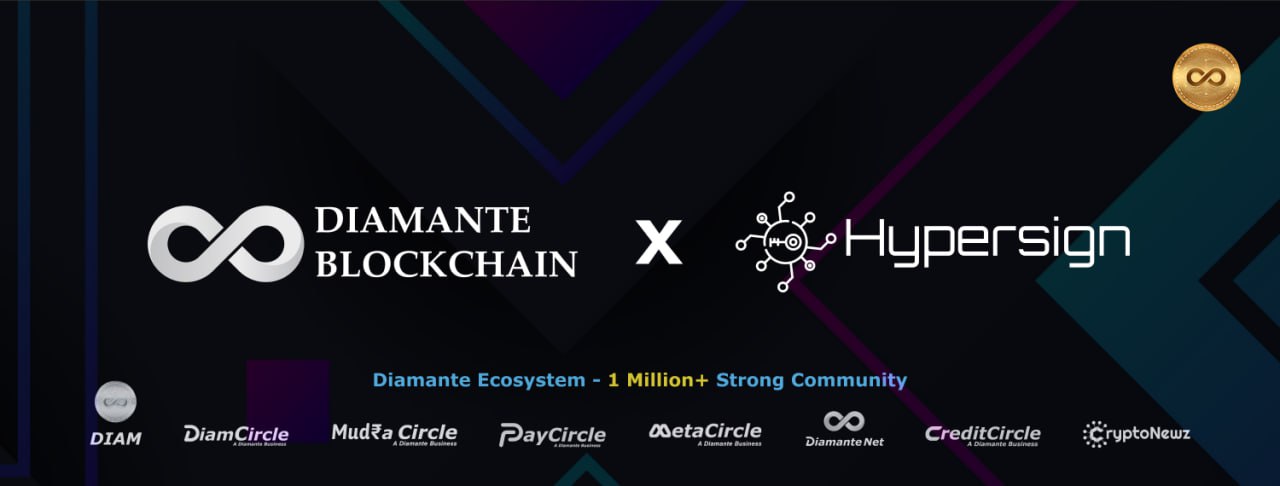
The Impact of Decentralized Governance on Decision-Making Efficiency
- Antwan Koss
- June 17, 2023
- Blockchain
- Decentralized, Decision Making, Governance
- 0 Comments
Are you curious about the impact of decentralized governance on decision-making efficiency? In this comprehensive article, we will explore the fascinating concept of decentralized governance and its effects on decision-making processes. By delving into the topic of decentralized governance, we can gain a deeper understanding of how it shapes and influences decision-making within various organizations, communities, and systems.
Introduction: Embracing Decentralized Governance
In today’s rapidly evolving world, decision-making plays a vital role in the success of any entity, be it a business, government, or community. Traditional hierarchical structures often involve top-down decision-making, where a select few hold the power to determine outcomes. However, with the emergence of decentralized governance models, decision-making processes are distributed across multiple nodes, ensuring a more inclusive and participatory approach.
Decentralized Governance: A Brief Overview
Decentralized governance refers to the distribution of authority and decision-making power among various stakeholders, creating a more democratic and transparent system. In this model, decision-making is not confined to a single central authority but instead involves the active involvement and contribution of multiple individuals or entities.
Decentralization can manifest in various forms, ranging from local government structures to blockchain-based systems. Each model has its unique characteristics and advantages, which we will explore further in the subsequent sections.
Benefits of Decentralization in Decision-Making

Decentralized governance offers several significant benefits when it comes to decision-making efficiency. Let’s delve into some of the key advantages that this approach brings:
a. Enhanced Creativity and Innovation
Decentralized decision-making fosters an environment where diverse perspectives and ideas can flourish. By involving multiple stakeholders in the decision-making process, organizations tap into a rich pool of knowledge, experience, and creativity. This inclusivity sparks innovation and often leads to more comprehensive and forward-thinking decisions.
b. Increased Efficiency and Responsiveness
One of the notable advantages of decentralized governance is the ability to expedite decision-making processes. Unlike centralized models, where decisions may get delayed due to bureaucratic hurdles, decentralized systems empower individuals or local communities to make quick and informed choices. This agility enables organizations to adapt swiftly to changing circumstances and take advantage of emerging opportunities.
c. Strengthened Transparency and Accountability
Decentralized decision-making promotes transparency and accountability among participants. With a distributed model, decision-makers are often more answerable to their constituents, resulting in a higher level of responsibility. Moreover, the transparency inherent in these systems helps build trust and credibility among stakeholders, enhancing overall governance effectiveness.
d. Empowered Local Communities
Decentralized governance empowers local communities by giving them a voice in decision-making processes that directly affect their lives. When decisions are made closer to the affected individuals, it ensures that their unique needs and perspectives are taken into account. This localized approach fosters a sense of ownership and strengthens community bonds.
e. Flexibility and Adaptability
Decentralized decision-making systems are inherently flexible and adaptable. As they distribute decision-making authority, they allow for a more organic and responsive approach. This flexibility enables organizations to respond effectively to dynamic situations, navigate complex challenges, and seize emerging opportunities.
f. Reduced Burden on Central Authorities
By distributing decision-making power, decentralized governance models alleviate the burden on central authorities. Instead of having to handle every decision, they can focus on broader strategic planning and policy development. This delegation of authority allows central bodies to optimize their functions and concentrate on areas where their expertise is most valuable.
Challenges and Limitations of Decentralized Decision-Making
While decentralized governance brings several advantages, it is essential to acknowledge the challenges and limitations associated with this approach. By understanding these factors, organizations can navigate potential pitfalls and ensure the successful implementation of decentralized decision-making models. Some of the key challenges include:
a. Coordination and Consensus Building
Decentralized decision-making requires effective coordination and consensus-building among multiple stakeholders. Achieving alignment and agreement can be a complex process, especially when dealing with diverse opinions and interests. Organizations must invest in robust communication channels, facilitation techniques, and conflict resolution mechanisms to navigate these challenges successfully.
b. Complexity of Decision-Making Processes
Decentralization can introduce additional complexity into decision-making processes. With multiple nodes involved, the decision-making framework needs to be well-defined, transparent, and accountable. Organizations must invest in proper governance structures, frameworks, and decision-making protocols to ensure clarity and efficiency throughout the process.
c. Potential for Inefficiency and Inconsistency
Without proper checks and balances, decentralized decision-making models can sometimes result in inefficiencies and inconsistencies. It is crucial to strike a balance between autonomy and central oversight to prevent duplication of efforts, contradictory decisions, or suboptimal outcomes. Regular evaluation and refinement of the governance model can help mitigate these risks.
Effective Implementation of Decentralized Governance
To maximize the benefits of decentralized governance, organizations must adopt effective implementation strategies. Here are some key considerations for successful implementation:
a. Clear Vision and Objectives
Before transitioning to a decentralized decision-making model, organizations must establish a clear vision and objectives. This clarity helps align the decision-making process with the organization’s overall goals and ensures that participants are working towards a common purpose.
b. Robust Communication Channels
Open and transparent communication channels are crucial for effective decentralized decision-making. Organizations should invest in platforms, technologies, and processes that facilitate seamless information sharing, collaboration, and feedback among participants. This communication infrastructure enhances coordination and consensus-building efforts.
c. Training and Capacity Building
Successful implementation of decentralized governance requires equipping participants with the necessary skills and knowledge. Organizations should invest in training and capacity building programs that empower individuals to make informed decisions and contribute meaningfully to the decision-making process.
d. Continuous Evaluation and Improvement
Decentralized decision-making is an iterative process that benefits from continuous evaluation and improvement. Organizations should establish mechanisms for monitoring the effectiveness of the governance model, gathering feedback from participants, and making necessary adjustments to optimize outcomes.
Examples of Successful Decentralized Decision-Making Models
Decentralized decision-making has found success in various domains, and several examples illustrate its potential. Let’s explore some notable instances:
- Open-source Software Development: Open-source projects often operate on decentralized decision-making models, where contributors worldwide collaborate to develop software collectively. The Linux operating system is a prime example of successful decentralized decision-making within the software development community.
- Blockchain Technology: Blockchain networks rely on decentralized governance to achieve consensus and validate transactions. These distributed systems operate without a central authority, allowing for transparent and secure decision-making in areas such as cryptocurrencies, supply chain management, and smart contracts.
- Participatory Budgeting: Some municipalities have implemented decentralized decision-making processes in budget allocation. Participatory budgeting enables citizens to have a direct say in how public funds are allocated within their communities, fostering transparency, civic engagement, and accountability.
These examples demonstrate the versatility and effectiveness of decentralized governance models in different contexts.
The Future of Decentralized Governance
As technology continues to advance, decentralized governance is poised to play an increasingly significant role in decision-making processes. The potential applications extend beyond traditional domains, with emerging technologies like artificial intelligence, decentralized finance (DeFi), and decentralized autonomous organizations (DAOs) pushing the boundaries of decentralized decision-making.
With its ability to foster inclusivity, transparency, and innovation, decentralized governance holds promise for addressing complex societal challenges, empowering communities, and driving meaningful change in the years to come.
Empowering Local Communities through Decentralization
Decentralized governance plays a crucial role in empowering local communities by giving them a voice in decision-making processes. When decisions are made closer to the affected individuals, it ensures that their unique needs and perspectives are taken into account. This localized approach fosters a sense of ownership and strengthens community bonds.
By involving local stakeholders in decision-making, decentralized governance allows communities to address their specific challenges and develop tailored solutions. For instance, in the context of urban planning, decentralized decision-making enables community members to contribute their insights and preferences regarding infrastructure development, public spaces, and zoning regulations. This involvement leads to more responsive and sustainable outcomes that align with the community’s vision.
Furthermore, decentralization empowers marginalized communities that have historically been excluded from decision-making processes. It provides them with a platform to voice their concerns, advocate for their rights, and actively participate in shaping their own future. This inclusivity not only strengthens social cohesion but also leads to more equitable and just outcomes.
Ensuring Accountability in Decentralized Decision-Making
Accountability is a critical aspect of decentralized governance to ensure the effectiveness and integrity of decision-making processes. When decision-making authority is distributed among multiple stakeholders, mechanisms must be in place to hold them accountable for their actions and decisions.
Transparency is a cornerstone of accountability in decentralized governance. By making information accessible and open to scrutiny, stakeholders can evaluate decisions and assess whether they align with established principles and goals. Transparent decision-making processes build trust among participants and foster a culture of responsibility.
In addition to transparency, accountability can be reinforced through mechanisms such as checks and balances, performance evaluations, and reporting systems. These measures help ensure that decision-makers act in the best interest of the collective and adhere to established guidelines and regulations.
Moreover, decentralized decision-making can benefit from external oversight. Independent auditing bodies or regulatory authorities can play a role in monitoring the decision-making process, investigating potential conflicts of interest, and ensuring compliance with legal and ethical standards. This external accountability mechanism adds an extra layer of integrity and trust to the decentralized governance system.
Conclusion
Decentralized governance has a profound impact on decision-making efficiency, fostering inclusivity, transparency, and adaptability. By distributing decision-making power among multiple stakeholders, organizations can harness the collective wisdom and creativity of diverse individuals, leading to more informed and effective decisions.
While challenges exist, successful implementation strategies, such as clear vision, robust communication, training, and continuous evaluation, can mitigate risks and maximize the benefits of decentralized decision-making.
As we move forward into a future shaped by technological advancements and evolving societal needs, embracing decentralized governance offers immense potential for creating more efficient, participatory, and impactful decision-making processes.





